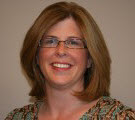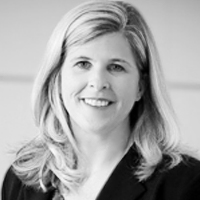Interview with Laurel Christensen, Ph.D., Chief Audiology Officer, ReSound
Topic: ReSound's Advances in Amplification Symposium - Meeting the Needs of Aging Adults, Online Conference November 7 - 11, 2011

Laurel Christensen, Ph.D.
CAROLYN SMAKA: This is Carolyn Smaka from AudiologyOnline, and today I'm speaking with Dr. Laurel Christensen, ReSound's Chief Audiology Officer. Laurel, great to talk to you again.
LAUREL CHRISTENSEN: Great to talk to you, too.
SMAKA: Our topic is your upcoming virtual online conference, Advances in Amplification: Meeting the Needs of Aging Adults. Why did ReSound decide to host this conference?
CHRISTENSEN: In addition to hosting conferences that cover our products, as a manufacturer, we feel that it is important to host a conference that would bring in leading experts to discuss topics that are important to professionals who are fitting hearing aids today. We know that it can be challenging to keep up on the latest research and clinical practices, especially when it comes to hearing aid technology, which seems to change every couple of months. As a manufacturer, we want to ensure professionals are not only up to date on our products, but also on other topics that are relevant to their daily practice. In the end, we're all working together to ensure the patients fit with hearing aids today have the best possible outcomes, and we believe conferences such as this can help us achieve that.
SMAKA: The title of the online symposium, "Meeting the needs of aging adults" is always relevant for people fitting hearing aids.
CHRISTENSEN: Yes. Our goal is to host an annual conference with the general theme Advances in Amplification. Every year we'll change the key topic, depending on where the latest advances and research takes us. This year, we selected aging as the key topic. The average age of the hearing aid user today is 70 years. Most of the people who are fit with hearing aids are elderly. Since this topic is going to be very relevant for most professionals who fit hearing aids today, we decided that it was an excellent choice to kick off our annual conference. And we are really fortunate to have partnered with leading experts in aging to present this year.
SMAKA: What's on the agenda?
CHRISTENSEN: We put together a panel of four outstanding presenters. Most AudiologyOnline readers are familiar with the work of Dr. Kathy Pichora-Fuller from University of Toronto, who will be presenting on Tuesday, November 8th. She will discuss cognition and how aural rehabilitation affects cognitive performance. She will also talk about overcoming psychological factors such as stereotypes to deliver a better patient outcome. On Wednesday November 9th, Dr. Lorienne Jenstad from the University of British Columbia will discuss modern signal processing in hearing aids, and specifically how it relates to older adults. This will be a very interesting discussion of what kinds of considerations we need to make for elderly or aging hearing aid users when it comes to selecting and fitting various signal processing features and strategies.
On Thursday November 10th, we'll turn it a bit more clinical as we talk about wireless technology. The vast majority of hearing aids today offer wireless connectivity, and they enable us a unique opportunity to help the elderly- in specific situations with their TVs, with their telephones, and with small microphones where you can improve communication in a noisy environment. Dr. Hillary Snapp, from the University of Miami Ear Institute, will take a clinical approach to how this technology can be integrated into the hearing aid selection and fitting process with older adults.
And then on Friday, Dr. Matt Perry will be presenting. He's a private practitioner, and he hosts an Internet program called Audiology Marketing Now. He's a young audiologist who understands Internet marketing really well. We thought it would be timely to bring him in and ask, how we should be using the Internet to market to elderly adults? What are the best strategies in marketing to this population?
SMAKA: That sounds like a diverse group of presenters and topics.
CHRISTENSEN: Yes, it covers the gamut from cognition through signal processing, to clinical protocols and marketing. We've really packed a lot into a week. I'll present on the first day of the conference with an overview of how we are doing as a profession in addressing the needs of aging adults with hearing aids. With advances in technology we have better solutions for their hearing needs. What have we really improved upon, and where do we still need to go with amplification for the aging? Overall, we're very excited and it should be an informative and thought-provoking week focused on aging adults.
SMAKA: Yes those are great topics. I've seen a lot of debate about marketing to the elderly on the Internet, such as do you target them, or do you target their caregivers, i.e. the baby boomer son or daughter? It will be interesting to hear Matt Perry's approach. The same with Hillary Snapp's presentation on wireless technology and the elderly - how do you keep it simple and ensure they benefit from the technology? And certainly Drs. Pichora-Fuller and Jenstad's work is always fascinating.
CHRISTENSEN: Yes we think so, too. We're also excited about the online format - by making the conference convenient and accessible we're hoping that more professionals can have the opportunity to hear from these experts.
As you mentioned, the symposium is happening November 7 - 11th, 2011. There will be one live presentation per day from 12:00 to 1:00 Eastern (9:00 to 10:00 Pacific). We're hoping that these hours are convenient for people who want to attend the live sessions all week, as they can either take that first hour of their day if they are on the West coast, or use their lunch hour if they're in the Central or Eastern time zones. All presentations will also be recorded and available for viewing in the ReSound course library on AudiologyOnline after the symposium.
We know that there are some great in-person conferences out there from other companies. But typically, if you are not a major customer and have to pay your own way, it can be an expensive undertaking to attend, when you consider registration, hotel, and travel costs. We wanted to provide a world-class educational opportunity that people could attend from their home or office, and that we could build on year after year.
SMAKA: We should mention that up to .5 continuing education units (CEUs) from a variety of professional associations are offered for AudiologyOnline CEU Total Access members. Registration is free, but attendance to the live sessions is limited.
CHRISTENSEN: Thanks for mentioning that, Carolyn. All courses are now open for registration and we encourage professionals to register early. Whether you are a ReSound customer or not, if you see aging adults in your clinical setting, we invite you to attend. We're confident you'll leave with information that will benefit your practice and your patients.
SMAKA: Thanks for your time today, Laurel, and wishing you much success with the symposium in November.
CHRISTENSEN: Thanks, Carolyn. Looking forward to it!
For more information about ReSound, visit the ReSound web channel on AudiologyOnline.


